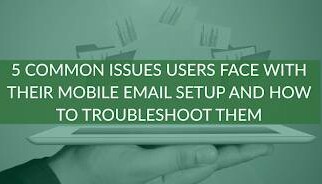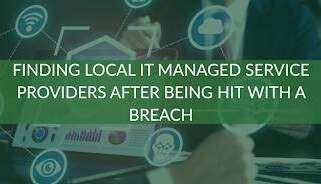Progressive Computer Systems' 2024 Cybersecurity Checklist: Securing North Carolina Dentists
As a leading provider of IT services, Progressive Computer Systems remains dedicated to the cybersecurity of businesses in North Carolina. In light of the increasing prevalence of cyber threats, we developed a comprehensive cybersecurity checklist tailored for dental practices in 2024. Our main goal is to help dentists safeguard their practices against potential cyber-attacks while ensuring regulatory compliance.
Understanding the importance of cybersecurity in today's technology-driven world is crucial for businesses across all industries. The risks of not having a robust cybersecurity strategy for dental practices in North Carolina can be even more detrimental. Patient records, financial data, and other sensitive information are at risk, making it essential for dental practices to adopt and implement proactive cybersecurity measures.
By utilizing our 2024 Cybersecurity Checklist for North Carolina Dentists, dental professionals can effectively identify potential vulnerabilities within their existing cybersecurity landscape. This checklist includes essential preventative measures incident response planning, and focuses on regulatory compliance, ultimately providing a comprehensive roadmap for maintaining and enhancing the security of dental practices.
Download our free cybersecurity checklist here.
Key Takeaways
- The 2024 Cybersecurity Checklist for North Carolina Dentists helps identify potential vulnerabilities and enhance security measures.
- Emphasizes the importance of preventative measures, incident response planning, and regulatory compliance for dental practices.
- Designed to provide dental professionals with a comprehensive roadmap for maintaining and enhancing the security of their practices.
Understanding Cybersecurity Threats
As we enter 2024, the digital landscape continues to evolve, and with it comes an increased risk of cyber threats to businesses, including dental practices in North Carolina. This section will provide an overview of common cybersecurity threats to help increase your awareness and preparedness.
Common Cyber Attacks
Dental practices of all sizes are susceptible to various types of cyber attacks. Some of the most common include:
- Ransomware: Encrypting your data and holding it hostage until a ransom is paid
- Phishing: Deceptive emails designed to trick you into revealing sensitive information
- Social Engineering: Manipulating users into revealing sensitive information or carrying out malicious actions
- Malware: Malicious software designed to exploit vulnerabilities and cause harm
To combat these threats, it's essential to maintain a comprehensive cybersecurity program that includes regular risk assessments, employee training, and up-to-date security measures.
Ransomware Specifics
Ransomware attacks are especially prevalent and devastating to businesses. A ransomware attack occurs when malicious software infiltrates your systems, restricting access to your data until a ransom is paid. Here are some key points to consider when preparing for ransomware:
- Prevention: Regularly update software and security patches, use strong passwords, and limit user access
- Response: Develop a clear incident response plan outlining the steps to take in case of an attack
- Recovery: Maintain regular backups of critical data stored offsite or in the cloud for easy restoration
Phishing and Social Engineering
Phishing and social engineering attacks work by exploiting human vulnerabilities rather than relying on sophisticated technology. These attacks are often via email, phone calls, or social media. Here are some best practices to prevent these attacks:
- Awareness: Educate your staff on the signs of phishing attempts and social engineering schemes, including common tactics and red flags
- Secure Communication: Use secure channels for sensitive communications and ensure all employees are trained on proper procedures
- Verification: Implement procedures for confirming requests for sensitive information or actions, such as a multi-step authentication process
By understanding the cybersecurity threats faced by dental practices in North Carolina and following the guidelines provided in the 2024 Cybersecurity Checklist, you can help protect your business and ensure the safety of your patient's information.
Cybersecurity Fundamentals
As we embrace digital technology, the attack surface for cyber threats continues to expand. To help North Carolina dentists protect their patient data and sensitive information, we've created a comprehensive 2024 cybersecurity checklist. In this section, we will discuss the fundamentals of cybersecurity, focusing on three key sections: Data Encryption, Network Security, and Access Control.
Data Encryption
Data encryption ensures that sensitive information is unreadable to anyone without the appropriate decryption keys. We recommend the following encryption practices for North Carolina dentists:
- At-rest encryption: Secure patient data and sensitive files stored on your systems should be encrypted. This includes databases, backups, and file servers.
- In-transit encryption: Ensure the confidentiality of information transmitted over your network by using encrypted communication protocols such as HTTPS and TLS.
- Use strong encryption algorithms: AES-256, RSA-2048, and SHA-256 are examples of robust encryption algorithms to protect your data.
Network Security
Network security involves safeguarding the integrity and confidentiality of your computer network. Adhering to best practices in network security can help prevent unauthorized access and cyberattacks. Implement the following measures:
- Install a robust firewall to filter incoming and outgoing traffic to protect your network from unauthorized access.
- Ensure a secure Wi-Fi connection by using strong encryption protocols like WPA3 and regularly changing your wireless passwords.
- Keep your software and hardware up-to-date to benefit from the latest security patches and avoid potential vulnerabilities.
- Implement intrusion detection and prevention systems (IDPS) for real-time monitoring, detecting, and mitigating potential threats.
- Regularly conduct vulnerability assessments and penetration tests to identify weaknesses in your network.
Access Control
Access control is vital for managing who has access to sensitive information and resources. Consider these key points to ensure proper access control in your dental practice:
- Role-based access control (RBAC): Assign user roles and specify access rights based on job responsibilities and functions.
- Multi-factor authentication (MFA): Implement MFA to add an extra layer of security for user logins and confirm users' identities before granting access.
- Regularly review and update access privileges: Periodically audit user accounts and access permissions to identify potential security risks and maintain an up-to-date access control list.
By following these cybersecurity fundamentals, North Carolina dentists can help protect their practices and patients' sensitive data from cyber threats.
2024 Checklist Overview
This section will provide an overview of the critical aspects of the 2024 Cybersecurity Checklist specifically designed for North Carolina dentists by Progressive Computer Systems. The key areas we will discuss include Inventory of Assets, Risk Assessment Procedures, and Staff Training and Awareness.
Inventory of Assets
The first step in improving cybersecurity is understanding the devices and systems needing protection. In this subsection, we recommend inventorying all devices and systems connected to your network, including computers, servers, mobile devices, and IoT devices. Some critical points to consider while creating this inventory are:
- Device Information: Make/model, operating system version, installed software, assigned user(s)
- Ownership: Distinguish between personal and business-owned devices
- Location: Ensure you know where every device and system is physically located
- Access Control: Identify who has access to each device and system and manage permissions accordingly
Risk Assessment Procedures
Evaluating and minimizing the risks associated with your digital assets is vital to cybersecurity. Here's a list of recommended procedures to perform a comprehensive risk assessment:
- Identify Threats: Assess potential threats to the practice, such as phishing attacks, ransomware, unauthorized access, and human error
- Rank Vulnerabilities: Prioritize vulnerabilities based on the severity of potential impact on patient data and business operations
- Determine Likelihood: Evaluate the probability of a successful attack based on your current security measures.
- Implement Controls: Establish appropriate preventive and protective measures to mitigate identified risks.
Staff Training and Awareness
Your staff is often the first line of defense against cyber threats. Ensuring their awareness and understanding of cybersecurity best practices significantly contributes to the overall security posture of your dental practice. Key elements of staff training and awareness include:
- Regular Training: Conduct periodic cybersecurity training sessions to educate staff about evolving threats and preventive measures
- Phishing Simulations: Conduct simulated phishing attacks to gauge staff readiness and reinforce the importance of vigilance
- Password Management: Encourage the use of strong, unique passwords and enforce periodic password changes
- Incident Reporting: Establish clear procedures for reporting and handling suspected security incidents
By addressing these critical elements from the 2024 Cybersecurity Checklist, North Carolina dentists can significantly improve the security and privacy of their patients' data and protect their practices from potential cyber threats.
Preventative Measures
Software Updates and Patch Management
One essential aspect of maintaining proper cybersecurity for North Carolina dentists is ensuring software updates and patch management. Regularly updating software and applying security patches keep your systems secure and minimize the risk of cyber attacks. We recommend the following best practices:
- Regularly check for updates to your operating systems, browsers, and applications.
- Automate updates when possible to ensure timely installations.
- Maintain a detailed inventory of all software installed on the network.
- Establish a patch management policy that prioritizes critical security patches.
Secure Configuration
Secure configuration measures are another crucial aspect of protecting your dental practice's data. These measures prevent unauthorized access to sensitive information and reduce system vulnerabilities. Key points to consider include:
- Disable unnecessary services and applications, limiting potential entry points for attackers.
- Implement strong authentication protocols, such as two-factor authentication (2FA) and password complexity requirements.
- Regularly review user access permissions, ensuring that only necessary personnel can access sensitive information.
- Enable encryption for data both at rest and in transit.
Endpoint Protection
Effective endpoint protection is critical for maintaining a secure environment for your dental practice. In this context, an endpoint refers to any device connected to your network, such as computers, laptops, tablets, and smartphones. Consider the following steps to enhance your endpoint protection:
- Install reputable antivirus and anti-malware software on all devices.
- Enable host-based intrusion detection and prevention systems (IDS/IPS) for real-time monitoring.
- Implement strict mobile device management policies, including remote wipe capabilities.
- Regularly back up data to a secure, offsite location.
- Train your employees on best practices and how to identify and report suspicious activity.
Incident Response Planning
Response and Recovery
As cybersecurity becomes increasingly important in the dental industry, we've created a comprehensive 2024 Cybersecurity Checklist for North Carolina dentists, with special emphasis on Incident Response Planning. This includes a proactive approach to detecting, responding, and recovering from cyber incidents, specifically tailored for dental practices.
In line with the National Cyber Incident Response Plan (NCIRP) 2024, it's essential for dental practices to have a unified and shared responsibility when it comes to preparing for potential cybersecurity threats. This involves creating a reliable response and recovery strategy, including:
- Identification - Monitoring and detecting unusual activity, such as unauthorized access or unusual data transfers.
- Containment - Implement techniques to isolate the incident, minimize potential damage to other systems, and prevent the further spread of the threat.
- Eradication - Removing the threat from the system, ensuring all traces of malware or other harmful elements are eliminated.
- Recovery - Restoring affected systems, networks, and data to their normal state before the incident occurred.
- Lessons learned - Conducting a post-incident review to identify areas of improvement and implementing changes to prevent future incidents.
Reporting Obligations
Apart from having a strong incident response plan, dental practices must also adhere to reporting obligations set forth by the North Carolina Department of Information Technology (NCDIT). These guidelines require:
- Promptly report suspected or confirmed cybersecurity incidents to the appropriate authorities, including the North Carolina Dental Board and the North Carolina Emergency Operations Center (NCEOP).
- Retaining all logs, records, and other data relevant to a cyber incident for potential forensic analysis.
- Documenting the characteristics of the incident, the scope of affected systems, and the steps taken to resolve and recover from the incident.
By following our 2024 Cybersecurity Checklist and diligently preparing for potential threats, North Carolina dental practices can better protect their patient data, maintain trust, and continue providing essential dental services without interruption.
Regulatory Compliance
HIPAA Requirements
As North Carolina dentists, we must understand and comply with the Health Insurance Portability and Accountability Act (HIPAA) requirements. In light of the release of Progressive Computer Systems' 2024 Cybersecurity Checklist, let's review some of the key aspects of these requirements.
- Privacy Rule: We must protect our patients' personal health information (PHI) by implementing appropriate safeguards at our dental practice. This includes securing physical, technical, and administrative measures.
- Security Rule: We need to ensure that electronic PHI is protected, specifically regarding confidentiality, integrity, and availability. Controls such as access management, encryption, and regular security risk assessments are essential.
- Breach Notification Rule: In case of a PHI breach, we must notify affected individuals, the Department of Health and Human Services (HHS), and in some cases, the media within specific timeframes and following proper procedures.
Following these core HIPAA requirements can maintain patient trust and reduce the risk of violations.
State-Specific Cybersecurity Laws
In addition to HIPAA, we must familiarize ourselves with and adhere to state-specific cybersecurity laws to further protect our patients' data. Examples of these laws include:
- North Carolina Identity Theft Protection Act (NCIDTPA) requires us to implement reasonable security procedures and practices for protecting personal information (PI), including taking necessary steps to dispose of records containing PI securely.
- North Carolina Security Breach Notification Act (NCSBNA): In the event of a security breach, we must notify affected individuals promptly, usually within 30 days.
By incorporating the practices outlined in the 2024 Cybersecurity Checklist and following state-specific regulations, we demonstrate our commitment to safeguarding the sensitive information of our patients and staying compliant with relevant laws.
Checklist Implementation
This section will discuss how North Carolina dentists can effectively implement the 2024 Cybersecurity Checklist released by Progressive Computer Systems.
Setting Priorities
The first step in implementing the checklist is to prioritize the security measures based on their importance and level of urgency. To make this process easier, we recommend the following steps:
- Review the checklist and identify the most critical items in each category.
- Determine the potential impact of not addressing each item on the list.
- Assign a priority level to each item (e.g., High, Medium, Low).
- Develop a timeline for addressing high-priority items first, followed by medium and low-priority items.
Remember, there's no one-size-fits-all approach, as each dental practice's needs and vulnerabilities will differ.
Resource Allocation
Once the priorities have been set, allocating the necessary resources for implementing the cybersecurity measures is crucial. This involves both financial and human resources, as well as technical support. Consider the following aspects:
- Budget: Allocate funds for software, hardware, and third-party services needed to maintain robust cybersecurity defenses.
- Personnel: Assess the skills and knowledge of your current staff and identify the need for additional hires or training.
- External Support: Evaluate the need for service providers or consultants to help with specific tasks, such as security audits, network monitoring, or incident response.
Continuous Improvement
Cybersecurity is a continuous process that requires ongoing efforts to maintain and improve security defenses. As part of this process, we recommend that dental practices:
- Conduct regular security audits to identify vulnerabilities and measure the effectiveness of implemented measures.
- Stay up-to-date with the latest cybersecurity best practices, threats, and technology solutions, which may require updating your checklist periodically.
- Please review and update your security policies and procedures to keep them relevant and comprehensive.
By following these guidelines, North Carolina dentists can successfully implement Progressive Computer Systems' 2024 Cybersecurity Checklist and maintain a secure environment for their patients and their practice.

Download The North Carolina Dentist Cybersecurity Checklist
As cybersecurity experts specializing in providing IT services for dentists in North Carolina, we understand the importance of safeguarding sensitive patient and business data. We've created the North Carolina Dentist Cybersecurity Checklist to help dental practices enhance their cybersecurity measures.
The checklist covers various essential security aspects, such as:
- Establishing strong passwords and multi-factor authentication
- Regular secure data backup and offsite storage
- Staying updated with security patches for software and hardware
- Employee training on recognizing and avoiding phishing attacks
- Implementing a thorough incident response plan
To utilize our expertise and experience, download the North Carolina Dentist Cybersecurity Checklist and ensure your dental practice has the best cybersecurity measures available.
Adopting this checklist is crucial for preventing data breaches, safeguarding sensitive patient information, and protecting your business from cyber threats. Remember that cybersecurity is an ongoing process that requires continuous monitoring and updating as new threats and technologies arise.
Using our North Carolina Dentist Cybersecurity Checklist, you're taking a significant step toward enhancing your dental practice's overall security, ensuring patient trust, and fostering a thriving business environment.



